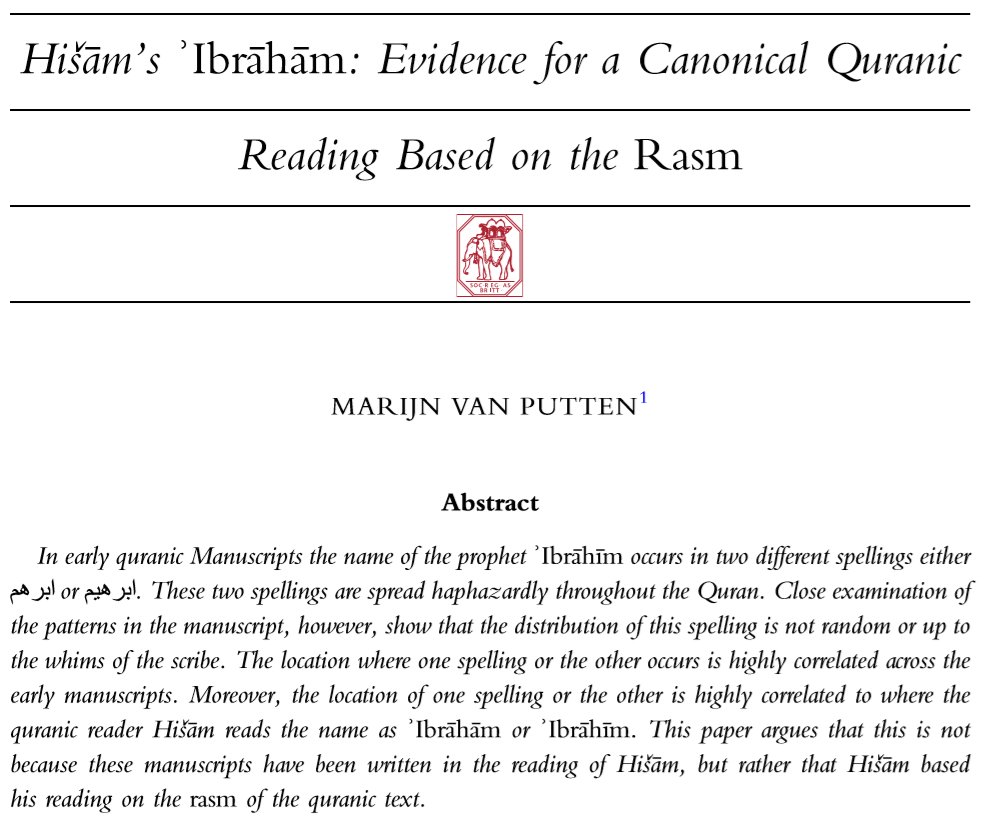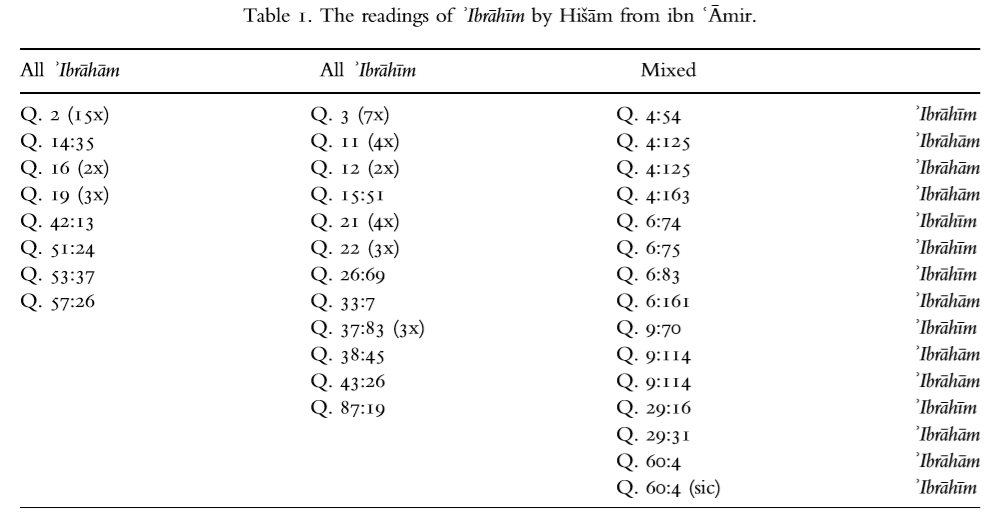This paper brings together different parts of study that I've been focusing on (Qirāʾāt, Manuscripts), happy it's finally out!
A short summary thread
doi.org/10.1017/S13561…

e.g. quran.com/2/124

There is also a practical problem: early manuscripts are not written "in" a reading. If that were the case we'd lose archetypal signal
I examined seven additional mss for region.
Two small typos that I didn't catch in the proofs that you can chose to edit in your own copy if you like.
Pg. 17: (B1) should've read لله for the non-Basran mushafs, not الله
Pg. 19: W's (S1) should've read MBK, not just BK.



















